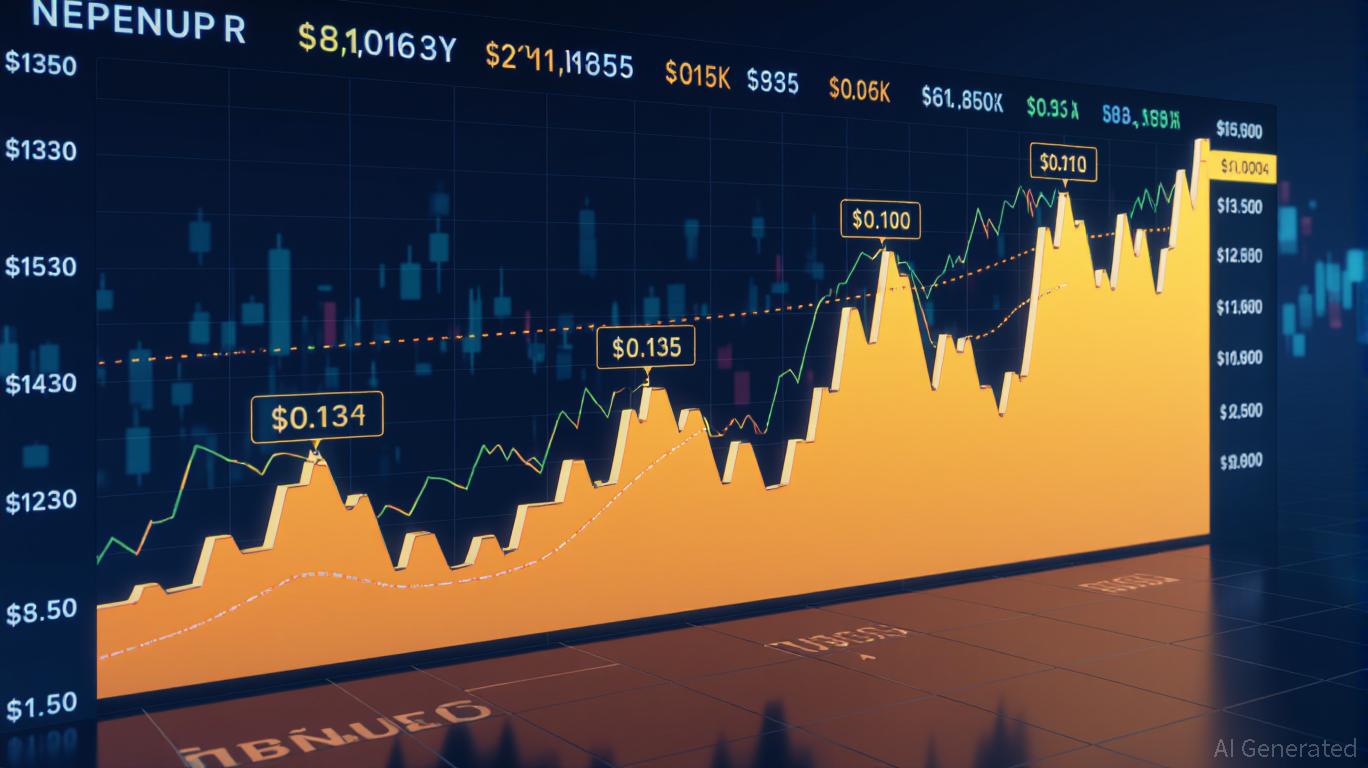Uniswap News Today: ZK Technology Secures $9 Million Funding to Transform Trustless DeFi Rewards
- Uniswap Foundation grants Brevis $9M to build a trustless gas rebate program for v4 hooked pools via ZK proofs. - The system uses off-chain computation and cryptographic verification to reduce costs while maintaining DeFi decentralization. - Routers gain economic incentives to adopt v4's advanced features, potentially boosting liquidity and trader efficiency. - This ZK-powered model could set a precedent for scalable, transparent DeFi incentives across blockchain ecosystems.
The
Uniswap v4, which debuted in January 2025, brought in customizable "hooked pools" that let developers integrate features like on-chain limit orders, automated liquidity compounding, and MEV-resistant mechanisms, according to a

Brevis’s solution uses off-chain processing to assess rebate eligibility, producing cryptographic proofs that are subsequently checked on-chain through smart contracts, as explained by ChainCatcher. This approach sidesteps the high costs and scalability concerns of on-chain computation while preserving trustless verification. Routers can apply these rebates to reduce their own costs, share savings with users, or grow sustainable treasuries, creating a cycle that promotes wider use of v4’s capabilities, according to the Brevis announcement.
This partnership highlights a broader mission: making DeFi more user-friendly and efficient. By cutting gas costs and simplifying aggregator integration, the initiative improves the user experience and encourages innovation, as noted in the Revolutionary Uniswap Foundation Grant coverage. For developers, the financial rewards linked to v4’s hooks accelerate the testing of advanced AMM (Automated Market Maker) features, potentially opening doors to new applications like algorithmic trading and yield strategies, the LookonChain report observes.
The Uniswap Foundation’s funding also reflects a wider industry shift toward ZK technology for better scalability and privacy. Brevis’s involvement underscores the rising significance of off-chain computation in overcoming blockchain throughput challenges without sacrificing security, a point emphasized by ChainCatcher. The trustless design of the rebate program ensures that no single party oversees verification, upholding DeFi’s key value of decentralization, as stated in the Revolutionary Uniswap Foundation Grant.
Looking forward, this initiative could become a model for future DeFi projects. By showing how ZK proofs can expand incentive programs while keeping processes transparent, the collaboration between Uniswap and Brevis may encourage similar approaches across other blockchain platforms, according to the LookonChain report. For now, the main goal is to boost v4’s adoption: increased liquidity from aggregated pools could result in narrower spreads and less slippage for traders, while developers benefit from a solid foundation for building advanced financial applications, the Brevis announcement concludes.
Disclaimer: The content of this article solely reflects the author's opinion and does not represent the platform in any capacity. This article is not intended to serve as a reference for making investment decisions.
You may also like
PENGU USDT Sell Alert and Stablecoin Price Fluctuations: Evaluating Algorithmic Dangers Amid Changing Cryptocurrency Markets
- PENGU USDT's 2025 volatility reignited debates on algorithmic stablecoin fragility amid regulatory uncertainty and post-UST market skepticism. - Technical analysis showed conflicting signals: overbought MFI vs bearish RSI divergence, with critical support/resistance levels at $0.010-$0.013. - $66.6M team wallet outflows and 32% open interest growth highlighted liquidity risks, while UST's collapse legacy exposed algorithmic design flaws. - Investors increasingly favor fiat-backed alternatives like USDC ,

HYPE Token Experiences Rapid Growth in December 2025: Evaluating Authenticity and Investment Opportunities Amidst an Unstable Post-ETF Cryptocurrency Landscape
- HYPE token surged in Dec 2025 amid post-Bitcoin ETF crypto optimism , raising questions about its investment legitimacy. - Hyperliquid's 72.7% decentralized trading volume share and $106M monthly revenue highlight its DeFi infrastructure strength. - Institutional backing from Paradigm and a $1B DAT fund signals confidence, though major exchange listings remain pending. - Price volatility, token unlocks, and mixed expert opinions underscore risks, with potential $53–$71 targets contingent on market condit
LUNA Falls by 5.77% Over 24 Hours Despite Fluctuating Medium-Term Performance
- LUNA fell 5.77% in 24 hours to $0.1512, but rose 47.52% in 7 days and 105.96% in 30 days. - However, it still faces a 64.14% annual loss, highlighting crypto market volatility and long-term risks for investors. - The price swing reflects sensitivity to macroeconomic shifts and sentiment, with analysts noting ongoing uncertainty in forecasts. - Investors are weighing recent resilience against regulatory challenges and institutional behavior shifts, monitoring if the drop signals a bearish trend or tempora

The Downfall of ChainOpera AI Token: An Alert for AI-Based Cryptocurrency Investments
- ChainOpera AI (COAI) token's 96% collapse in late 2025 highlights systemic risks in AI-driven crypto assets, prompting reevaluation of governance and regulatory frameworks. - Centralized ownership (88% by top 10 holders) and governance flaws at C3.ai exacerbated volatility, undermining decentralization and investor trust. - The crisis triggered sector-wide sell-offs, shifting capital to meme coins, while 2025 regulatory penalties rose 417% to $1.23B, intensifying scrutiny. - Experts warn speculative AI-c
